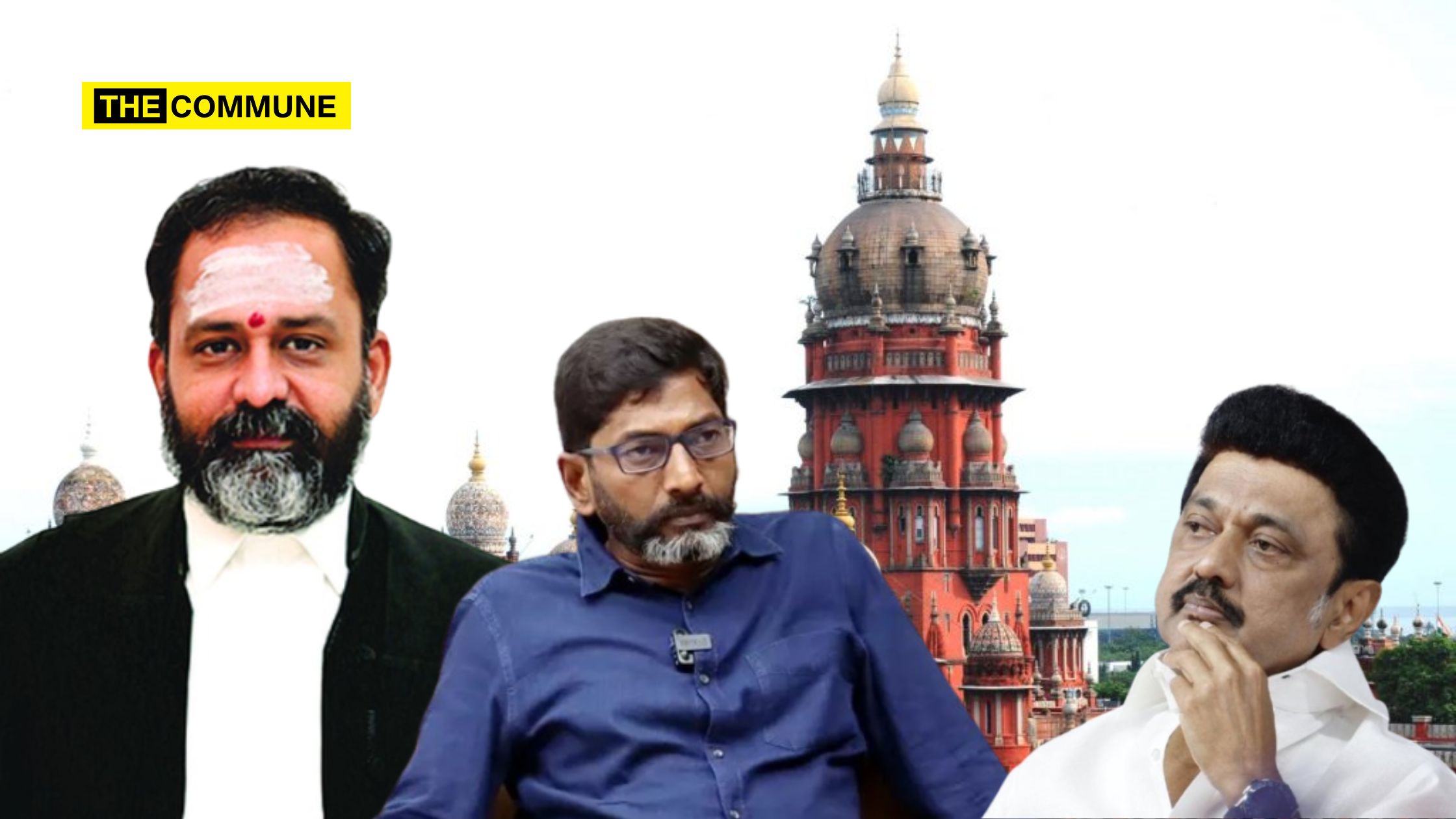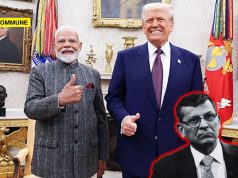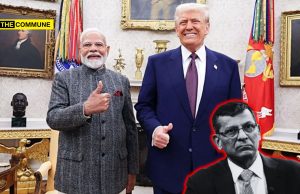
On 17 January 2025, the Madras High Court expressed concern about the growing trend of filing criminal cases against individuals for expressing their opinions on public matters, calling it indicative of a fascist mindset. The court raised alarms over the increasing practice of arresting people for making certain statements on social and mainstream media.
Judicial Lashing Of the Case’s Foundation
Justice Swaminathan meticulously dismantled the legal basis of the charges. The petitioner was accused under Sections 221, 222, and 353(1)(b) and (2) of the BNS Act, 2023. The court highlighted the glaring inconsistencies and overreach in these charges:
1. Misuse of Section 221:
The judge stated unequivocally that Section 221, which pertains to obstructing a public servant, was misapplied. The petitioner’s YouTube comments could not be construed as “deliberate stoppage” of the investigation. The judge quipped that the investigating officer appeared to have “his own dictionary,” twisting the meaning of obstruction to suit the narrative.
2. Misapplication of Section 222:
Section 222 involves a person’s legal obligation to assist a public servant. Justice Swaminathan ruled that since the petitioner believed the case to be false, he was under no obligation to assist the police. Therefore, invoking this section was baseless.
3. Perversity of Section 353:
The court labeled the application of Section 353 as “nothing short of perversity.” It rejected the claim that the petitioner’s video caused public mischief or fear, asserting that criticism of a police investigation falls within the ambit of free speech.
Slamming The Police And Government Actions
Justice Swaminathan’s observations extended beyond the legal technicalities, targeting the systemic misuse of power:
1. Erosion of Rule of Law:
The judge condemned the state for resorting to successive cases and preventive detention to silence the petitioner, terming it an act of “hounding.” He pointed to the state’s “scant regard for rule of law” and described the petitioner’s arrest as “unfortunate” and motivated by malafides.
Justice Swaminathan’s condemnation of the police and state government reached its zenith when he labeled the petitioner’s arrest as motivated by “petty reasons” and “evident malafides.” The judge unequivocally “condemned the respondent” for acting with blatant disregard for the rule of law.
2. Judiciary’s Responsibility to Stem the Rot:
He urged magistrates and sessions courts to play an active role in curbing such misuse of the law, emphasizing that the simplest remedy is to deny remand in such frivolous cases.
3. Democratic Ideals Under Attack:
Justice G.R. Swaminathan remarked, “Democracy is all about opinions. In the market place of ideas, only those that have substance will stand. If a opinion is ill founded, it will fail in the long run. To foist a case against a person for making a certain assertion is indicative of a fascist approach. The target of a verbal attack can be any person. No one can be a holy cow. Prosecution is one thing. Arrest is entirely another.”
The judge also recalled the Supreme Court’s repeated warnings to the police against making unnecessary arrests. He noted, “It seems these warnings have not been heeded. Arrests should only happen when violence is incited; otherwise, there’s no justification for police intervention.”
While acknowledging that police may sometimes act in bad faith, the judge emphasized the role of judicial magistrates and sessions courts in curbing such practices. He suggested that judicial officers could refuse to grant remand after a suspect’s arrest. If a suspect’s only offense was expressing an opinion or making comments, the trial courts should adopt a lenient stance when considering bail applications.
Justice Swaminathan expressed profound disbelief at the sequence of events that led to the petitioner’s judicial custody and subsequent denial of bail by the lower court. He remarked: “I fail to understand as to how he was remanded to judicial custody in the first place. Even more surprising is the denial of bail by the Court below.”
The judge observed an alarming trend of criminal cases being registered against individuals merely for expressing opinions. While the police cannot be preemptively restrained from acting with malice, the judiciary holds a crucial responsibility to intervene. He emphasized that judicial magistrates and sessions courts must refuse unwarranted remand and grant bail when allegations are trivial and baseless.
The judge made these comments in response to the remand of YouTuber A. Shankar, also known as “Savukku” Shankar, who had been arrested by the Central Crime Branch police in Chennai for allegedly spreading misinformation about a land fraud case. Justice Swaminathan expressed surprise over the remand, stating, “I don’t understand why he was remanded in the first place. Even more puzzling is the denial of bail. The petitioner is not asking for the FIR to be quashed, only for bail.”
Justice Swaminathan further criticized the state’s actions against Shankar, noting that he had been detained twice under the Goondas Act. When the Supreme Court intervened, the state circumvented its orders by filing additional cases against him. The judge condemned this behavior, calling it a violation of the rule of law and demonstrating the malice of the police involved.
After ordering Shankar’s release on a bond of ₹10,000, Justice Swaminathan stated, “I find the criminal case against the petitioner to be entirely unjustified.” The judge also questioned how Shankar’s interview on his YouTube channel could have obstructed the police investigation, sarcastically remarking that the investigating officer must have a unique definition of “obstruction” tailored to the convenience of the police.
A Stark Warning to the State
This judgment is a glaring reminder of the judiciary’s role as a bulwark against authoritarian overreach. Justice Swaminathan’s words resonate beyond the legal corridors, emphasizing that freedom of speech is sacrosanct and that no government should stifle dissent under the guise of maintaining law and order.
This case not only exposed the DMK government’s alleged vendetta-driven governance but also reaffirmed the judiciary’s commitment to upholding constitutional values.
Subscribe to our Telegram, WhatsApp, and Instagram channels and get the best stories of the day delivered to you personally.




